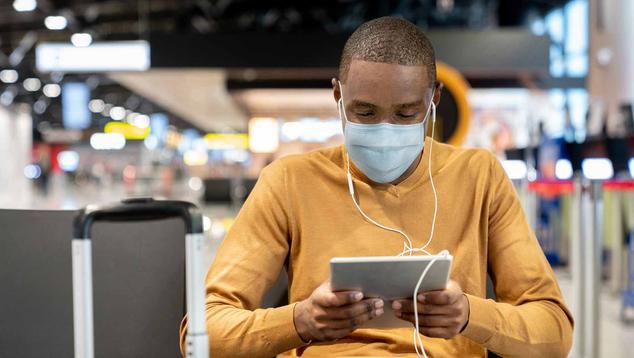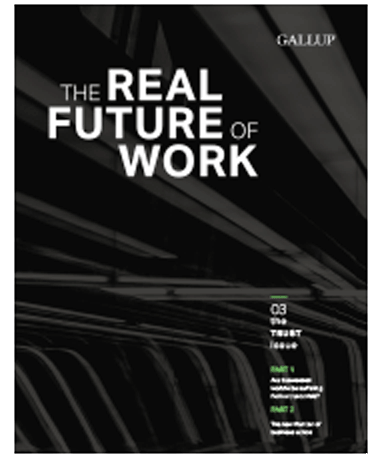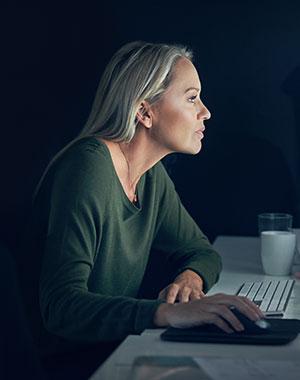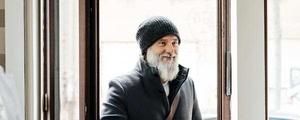Story Highlights
- Travel is a hard-hit industry during the COVID-19 pandemic
- Gain consumer trust by ensuring safety measures and de-escalating conflict
- Transform customer behaviors by building trust to affect your bottom line
The travel industry has been hit harder by COVID-19 than just about any other. Recent Gallup customer behavior research, conducted through the Gallup Panel, shows that 51% of Americans are concerned about catching COVID-19, and eight in 10 say health and safety concerns will influence their decision to stay in a hotel over the next six months.
Clearly, the industry's first priority is real customer-centricity built on customer safety. And it needs to happen quickly, because a mistrustful consumer base is directly affecting the industry's bottom line:
- Business travel accounts for 26% of total travel revenue in the U.S., according to Global Business Travel Association and U.S. Travel Association statistics -- but Gallup finds that just 23% of employees plan to travel for business at least once in the next six months, and 39% say that even if all travel restrictions were lifted, they'd rather stay home.
- Leisure travel is a household budget priority for 70.6% of Americans, according to Destination Analysts, and they spent $792.4 billion in 2019. But 57% of Americans today say they plan to travel for leisure in the next six months.
- Before COVID-19, three-quarters of Americans traveling for work (76%) "always" or "sometimes" stayed at a hotel. Now, 59% say they're that likely to stay at a hotel -- 20% say it's likely they'll choose private accommodations. Among leisure travelers in the U.S., 60% plan to stay in a hotel (down from 79%, pre-pandemic) and 35% say it's likely they will rent a private residence.
These Gallup Panel data show yet more red flags for a hard-hit industry. But the data also shed light on the feelings behind customer behaviors -- and ways to gain consumer trust.
Communicate that everything that can be done is being done to minimize customers' risk of COVID-19 exposure. Explain hygiene protocols in detail to illustrate customer-centricity and demonstrate trustworthiness. Helpfully, some of those protocols are a practical advantage to business travelers. Social distancing, for instance, puts fewer people in airports, hotels and restaurants, which is a boon to busy business travelers -- tell them so. But wrap the message around demonstrable proof that consumer safety is the business' prime motivator.
Equip guests with the tools to make themselves feel safe. A majority of business travelers strongly agree that "hotels should be responsible for providing sanitizer or disinfecting wipes to guests" -- an opinion even more pronounced among those who say they don't plan to travel in the next six months (business travelers: 66%, leisure travelers: 74%).
About three in 10 business travelers (29%) and vacationers (31%) strongly agree that hotels should offer face masks too -- and once again, that opinion is stronger among those who don't plan to travel in the next six months (business: 32%, leisure: 38%). Offering safety supplies may be overkill -- there's probably nothing a disinfectant wipe can do that a diligent cleaning staff hasn't already done -- but it allows people a sense of agency over their environment and indicates that the business cares.
Before COVID-19, three-quarters of Americans traveling for work (76%) "always" or "sometimes" stayed at a hotel. Now, 59% say they're that likely to stay at a hotel -- 20% say it's likely they'll choose private accommodations.
Learn how to de-escalate conflict. Gallup found that few people, only 18% of respondents, believe they can "safely stay in a hotel" and even fewer, 16%, strongly agree that they "trust other guests to comply with the health and safety policies." Customers are clearly insecure and mistrusting in an emotionally fraught, highly judgmental environment, which boosts the potential for conflict between guests and between guests and employees. Employees, especially customer-facing ones, should be taught to look for burgeoning trouble and techniques for de-escalation. Ending -- or better, preventing -- clashes shows that the organization has control over the guest experience and keeps the promises the brand makes.
Build trust.
Put all those data points together, and it's undebatable that safety and health measures are necessary but insufficient. Customers need advanced cleaning protocols, the availability of self-protective tools and protection not just from the virus, but also from other travelers.
They need the travel industry to go to great lengths to regain their trust.
Do it, and you can change consumer behaviors and purchasing decisions. Waiting out the virus is a mistake -- it's more resilient than many companies' coffers, and the U.N. says the travel industry stands to lose at least $1.2 trillion. The sector can't take much more of that. And it doesn't have to. The customers will return ... but only to organizations they can trust.
Gallup provides tools and learning to help you rebuild your customers' trust:
- Predict customer behavior in volatile times. Register for a webinar to learn about our new forecasting model.
- Learn more about a course that provides Gallup's latest research and best practices on how to deliver high performance in a changing workplace.
- Listen to a webcast on how to foster trust and transparency.






